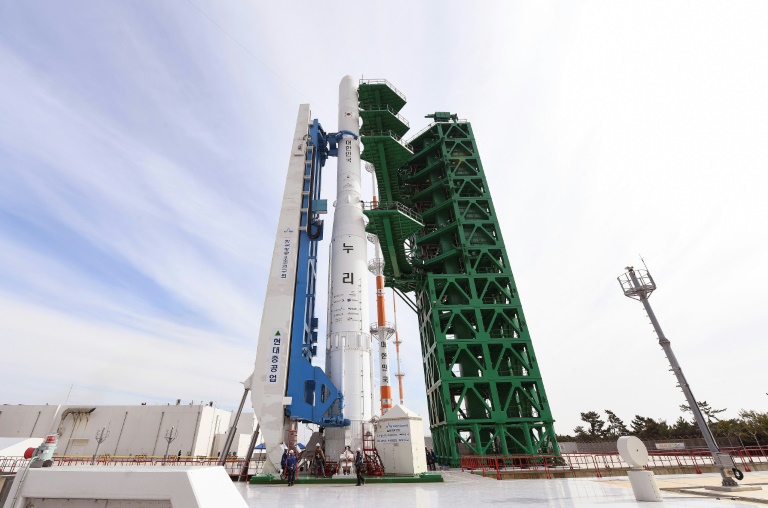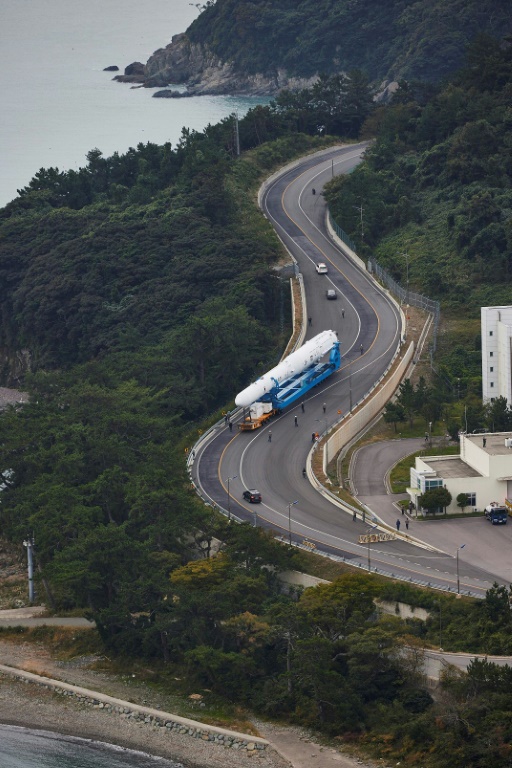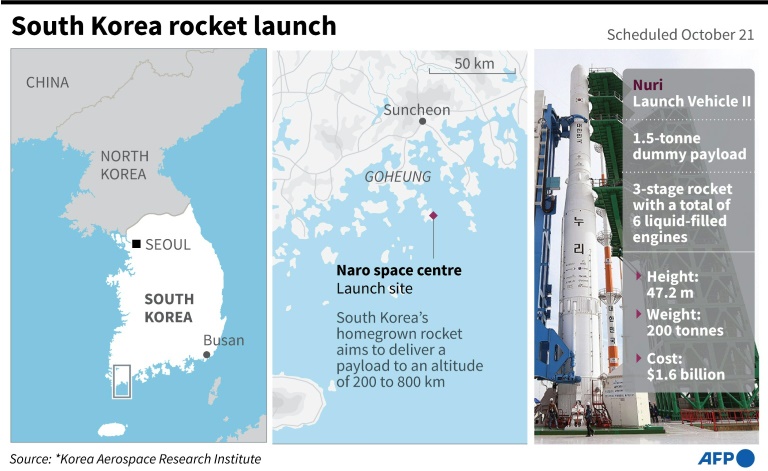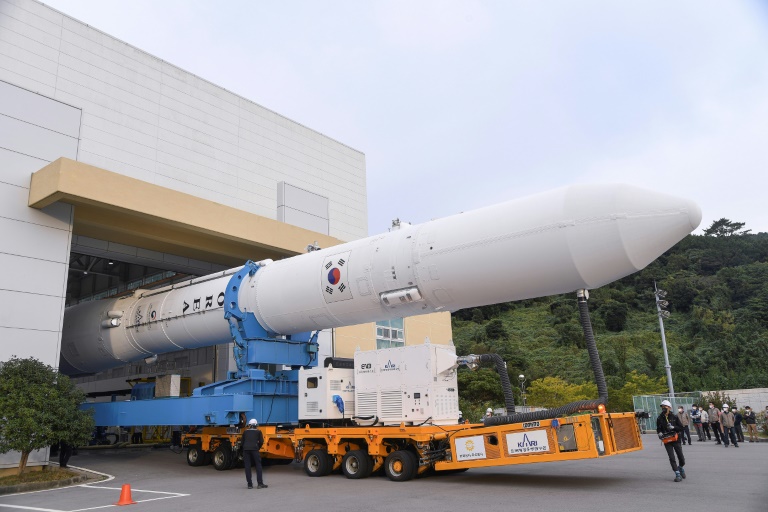
Nuri is South Korea’s first fully homegrown space rocket © Korea Aerospace Research Institute/AFP / Lee Hyo-kyun
Seoul (AFP), Oct 20 – South Korea launched its first domestically developed space rocket on Thursday but failed to put its dummy payload into orbit, a setback in the country’s attempts to join the ranks of advanced space-faring nations.
The Korea Space Launch Vehicle II, informally called Nuri and emblazoned with a South Korean flag, rose upwards from Goheung on the southern coast trailing a column of flame.
All three stages of the rocket worked, taking it to an altitude of 700 kilometres, and the 1.5-tonne payload separated successfully, President Moon Jae-in said after watching the launch at the control centre.
But “putting a dummy satellite into orbit remains an unfinished mission”, he announced.
“Though it fell short of achieving its goals perfectly, we have achieved very good feats with our first launch.”
Another attempt will be made in May, he added.
“Countries that lead in space technology will lead the future. And we are not too late to do it.”
The mission failed because the third-stage engine stopped burning 46 seconds earlier than scheduled, science minister Lim Hye-sook told reporters.
Cheering and applause had earlier broken out in the control centre as the flight seemed to proceed according to plan.
South Korea has risen from the ashes of war to become the world’s 12th-largest economy and a technologically advanced nation, home to the planet’s biggest smartphone and memory chip maker, Samsung Electronics.

Nuri’s first launch deployed a dummy payload in orbit © Korea Aerospace Research Institute/AFP / Handout
But it has lagged in the headline-making world of spaceflight, where the Soviet Union led the way with the first satellite launch in 1957, closely followed by the United States.
In Asia, China, Japan and India all have advanced space programmes, and the South’s nuclear-armed neighbour North Korea was the most recent entrant to the club of countries with their own satellite launch capability.
Ballistic missiles and space rockets use similar technology and Pyongyang put a 300-kilogramme (660-pound) satellite into orbit in 2012 in what Western countries condemned as a disguised missile test.
Even now, only six nations — not including North Korea — have successfully launched a one-tonne payload on their own rockets.
The three-stage Nuri rocket has been a decade in development at a cost of 2 trillion won ($1.6 billion). It weighs 200 tonnes and is 47.2 metres (155 feet) long, fitted with a total of six liquid-fuelled engines.
– Aiming for the Moon –
But the South Korean space programme has a chequered record — its first two launches in 2009 and 2010, which in part used Russian technology, both ended in failure, the second one exploding two minutes into the flight and Seoul and Moscow blaming each other.

Graphic on South Korea’s scheduled space launch on Thursday, October 21, the first of a domestically developed rocket. © AFP / John SAEKI
Eventually a 2013 launch succeeded, but still relied on a Russian-developed engine for its first stage.
The satellite launch business is increasingly the preserve of private companies, notably Elon Musk’s SpaceX, whose clients include the US space agency NASA and the South Korean military.
But one expert said a successful Nuri launch could offer South Korea “infinite” potential.
“Rockets are the only means available to mankind to go out into space,” Lee Sang-ryul, the director of the Korea Aerospace Research Institute, told local paper Chosun Biz ahead of the launch.

South Korea’s three-stage Nuri rocket weighs 200 tonnes and is 47.2 metres (155 feet) long © Korea Aerospace Research Institute/AFP / Lee Hyo-kyun
“Having such technology means we have fulfilled basic requirements to join this space exploration competition.”
Thursday’s mission was one step on an increasingly ambitious space programme for South Korea, which Moon previously said would seek to launch a lunar orbiter next year, after he inspected a Nuri engine test in March.
At the time, he said: “We will realise the dream of landing our probe on the Moon by 2030.”
About The Author

























































